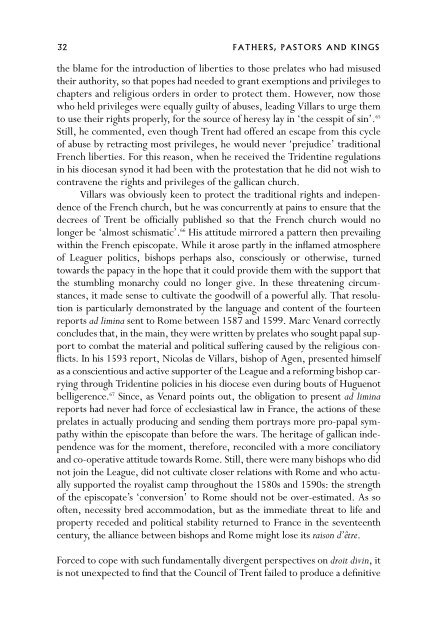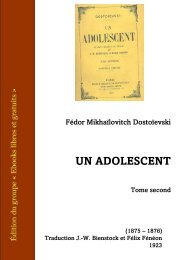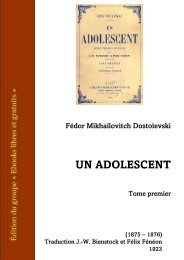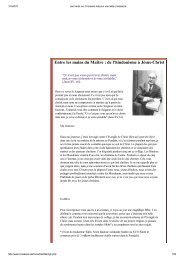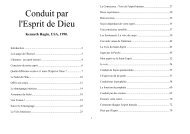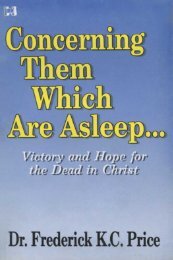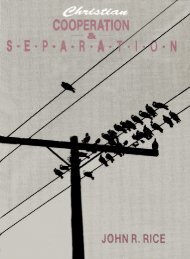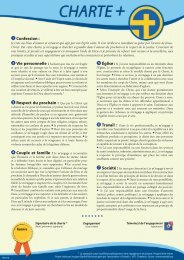341332
You also want an ePaper? Increase the reach of your titles
YUMPU automatically turns print PDFs into web optimized ePapers that Google loves.
32 FATHERS, PASTORS AND KINGS<br />
the blame for the introduction of liberties to those prelates who had misused<br />
their authority, so that popes had needed to grant exemptions and privileges to<br />
chapters and religious orders in order to protect them. However, now those<br />
who held privileges were equally guilty of abuses, leading Villars to urge them<br />
to use their rights properly, for the source of heresy lay in ‘the cesspit of sin’. 65<br />
Still, he commented, even though Trent had offered an escape from this cycle<br />
of abuse by retracting most privileges, he would never ‘prejudice’ traditional<br />
French liberties. For this reason, when he received the Tridentine regulations<br />
in his diocesan synod it had been with the protestation that he did not wish to<br />
contravene the rights and privileges of the gallican church.<br />
Villars was obviously keen to protect the traditional rights and independence<br />
of the French church, but he was concurrently at pains to ensure that the<br />
decrees of Trent be officially published so that the French church would no<br />
longer be ‘almost schismatic’. 66 His attitude mirrored a pattern then prevailing<br />
within the French episcopate. While it arose partly in the inflamed atmosphere<br />
of Leaguer politics, bishops perhaps also, consciously or otherwise, turned<br />
towards the papacy in the hope that it could provide them with the support that<br />
the stumbling monarchy could no longer give. In these threatening circumstances,<br />
it made sense to cultivate the goodwill of a powerful ally. That resolution<br />
is particularly demonstrated by the language and content of the fourteen<br />
reports ad limina sent to Rome between 1587 and 1599. Marc Venard correctly<br />
concludes that, in the main, they were written by prelates who sought papal support<br />
to combat the material and political suffering caused by the religious conflicts.<br />
In his 1593 report, Nicolas de Villars, bishop of Agen, presented himself<br />
as a conscientious and active supporter of the League and a reforming bishop carrying<br />
through Tridentine policies in his diocese even during bouts of Huguenot<br />
belligerence. 67 Since, as Venard points out, the obligation to present ad limina<br />
reports had never had force of ecclesiastical law in France, the actions of these<br />
prelates in actually producing and sending them portrays more pro-papal sympathy<br />
within the episcopate than before the wars. The heritage of gallican independence<br />
was for the moment, therefore, reconciled with a more conciliatory<br />
and co-operative attitude towards Rome. Still, there were many bishops who did<br />
not join the League, did not cultivate closer relations with Rome and who actually<br />
supported the royalist camp throughout the 1580s and 1590s: the strength<br />
of the episcopate’s ‘conversion’ to Rome should not be over-estimated. As so<br />
often, necessity bred accommodation, but as the immediate threat to life and<br />
property receded and political stability returned to France in the seventeenth<br />
century, the alliance between bishops and Rome might lose its raison d’être.<br />
Forced to cope with such fundamentally divergent perspectives on droit divin, it<br />
is not unexpected to find that the Council of Trent failed to produce a definitive


